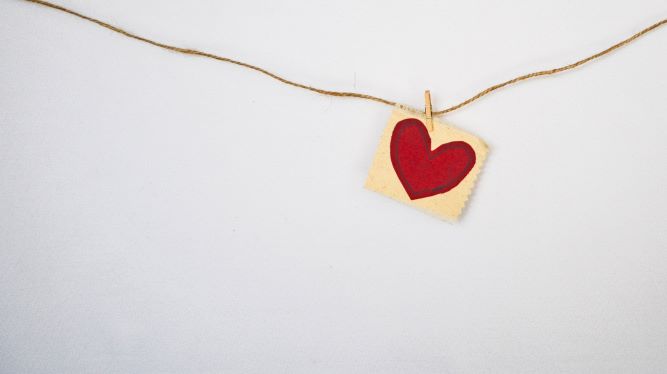We use cookies to make your experience better. To comply with the new e-Privacy directive, we need to ask for your consent to set the cookies. Learn more.
Different Kinds of Kindness
Andrew Adam, author of Thomas Cochrane and the Dragon Throne, is on our blog today for World Kindness Day. Thomas Cochrane showed extraordinary kindness during his work has a doctor in China. How can we show similar kindness to ourselves and others?
World Kindness Day comes round again, encouraging us to perform impromptu acts of goodness towards strangers. Because they are unexpected and ‘fun’ in a Comic Relief sense, everyone (it is said) gets the feel-good factor. This encourages us to be kind all the time and to make the world a kinder and better place.
But kindness comes in different sorts. A few years ago, in the library of the School of Oriental and African Studies in Bloomsbury, I came across some kindnesses recorded in a beautiful book. It was hand written in Mandarin, covered in silk and quaintly titled Ten Thousand Good Deeds Brought Together.
It contains a list of wealthy Chinese VIPs who in 1906 gave large sums of silver towards building a modern medical school in Peking. It was a great and desperately needed venture but the benefactors acted out of self-interest. Court protocol demanded that they follow the example of China’s ruler, the dreaded Empress-Dowager Cixi, or face her displeasure. A teaching hospital was also planned to replace a missionary hospital destroyed in the Boxer rebellion. Prominent Chinese (including Cixi) had supported the rebels and an act of atonement was needed.
However, behind the dodgy subscription list lies a nobler story, one of true kindness, goodness and sacrifice played out in the dying days of the Chinese Empire. My book Thomas Cochrane and the Dragon Throne, published by SPCK this month, describes how a young Scottish doctor, Thomas Cochrane, arrived as a medical missionary in Inner Mongolia, China’s remotest territory, in 1897. There he faced unbelievable difficulties and dangers. After three years of working single-handed in a mud-floored dispensary, he knew that his efforts were a drop in the ocean. A radical new approach was needed and he was gripped by the vision of a medical school and teaching hospital.
But then he was caught up in the Boxer Uprising in which nearly 300 missionaries were slaughtered. Narrowly escaping death, he came to Peking in 1901. For years he worked in obscurity in the slums, without allies, money or influence. In converted mule stables he treated the poorest of the poor – beggars, lepers and opium addicts - and he did it for free.
That kind of kindness did not go unnoticed in Peking, which was a harsh and pitiless society. The government was weak and uncaring, public charities were unknown and the justice system was unbelievably cruel. Across the empire 40,000 people perished every day, mostly from painful and avoidable causes. When famine or floods struck, millions perished. Kindness (except to ones family) was an indulgence that few could afford.
In 1903 Cochrane managed to bring a deadly cholera epidemic under control and he won friends at the Imperial Court. Now he was treating princes, courtiers and government ministers and their wives with the same indifference to rank or favour. Then he was asked to treat some of the emperor’s 2,000 eunuchs. These poor individuals were despised and reviled by the populace and rarely appeared on the streets. Again, Cochrane showed them the same kindness and devotion.
Among them was the Chief Eunuch, the private executioner of the dreaded Empress-Dowager Cixi. By gaining his friendship Cochrane gained her attention. In an unprecedented gesture she allowed the school to be built and contributed 10,000 ounces of silver. As I described, noblemen, governors, mandarins, merchants and taipans followed suit.
The result was China’s first school of western medicine. It taught a scientific curriculum in Mandarin to Chinese students who received instruction in the Christian faith. But most of the population was fiercely xenophobic, anti-Christian and sceptical about science. How on earth did Cochrane pull it off? He was my step-grandfather and I knew him well. After four years of research I concluded it was because of the altruistic kindness that he showed to Chinese people in all stations of life.
Kindness was not the monopoly of doctors or missionaries. Philanthropists, educationalists and entrepreneurs in China also displayed it, though their motives were often mixed. The net result was a great planting of schools, universities, orphanages, hospitals, dispensaries, bookshops, printing works, churches and chapels in China.
What can we learn from this period? Firstly, that kindness should celebrated and not forgotten. Today we British are chiefly remembered in China for negative reasons: the disastrous opium trade and our outrageous imperialism. They are taught universally in China’s classrooms. In the same way, Cochrane’s creation still stands in modern Beijing, arguably the finest academic and clinical centre in the Far East. But alas, its missionary origins are forgotten. This was one reason for writing the book.
Secondly, the effects of human kindness depend on its source. Small acts of human good will are never wasted and may have surprising results. But the spiritual imperative of loving ones neighbour as oneself is infinitely greater and more powerful. The Hebrew word chesed which describes it includes loving-kindness, unfailing devotion, mercy, tenderness and good deeds. Chesed is based on a previous relationship or covenant and it is an attribute of God himself. It requires teaching and modelling.
My step-grandfather’s dictum to me as a youngster was, ‘when you grow up, always be a Christian gentleman!’ He wanted me not just to profess faith, but to produce the kind of kindness that Jesus demonstrated. It blesses the giver as well as the receiver. Perhaps that is why the writer J.M. Barrie suggested that we should always be a little kinder than seems necessary.












